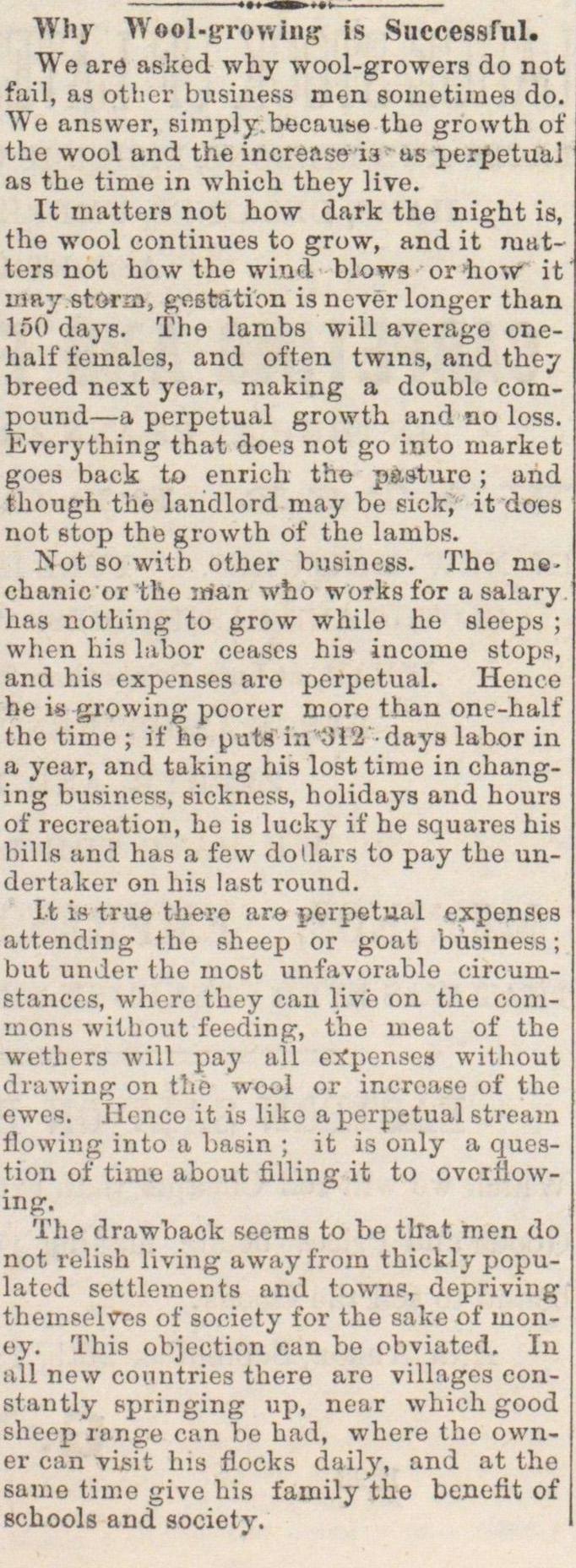Why Wool-growing Is Successful

VVe are askod why wool-growers do not fail, aa otlier business men soinetimes do. We answer, simply.because tho growth oí' the wool and the increase' Í3 ' as perpetual as the time in whioh they live. It mattera not how dark the night is, tho wool continúes to grow, and it nmtters not how the wind blows or -how it' uiay stursi, gesta tion is never longer than 150 days. The lamba will average onehalf femalcs, and often twms, and they breed next year, making a doublé compound - a perpetual growth and ao loss. Everything that does not go into rnarket goes back to enrieh the pasturo ; and though thé landlord may be eick, it does not stop the growth of the lambs. Not so wití) other business. Tho mechanic or tho aan who works for a salary has ïiothing to grow while he sleeps ; when his labor ccases his ineome stops, and his expenses aro perpetual. Henee he i growing poorer moro than one-half the time ; i f ho puts in 312 daya labor in a year, and taking his lost time in changing business, sickness, holidays and hours oí' recreation, ho is lucky it' he squares his bilis and has a few dollars to pay the undertaker on his last round. It is true thero are perpetual expenses attending the sheep or goat business ; but under the most unfavorablo circumstances, whero they can livó on the eonimons without feeding, the meat of the wethers will pay all expenses without drawing on tlie wool or incroase of tho ewes. Heneo it ia liko a perpetual stream fiowing into a basin ; it is only a question of time about filling it to oveiflowing. The drawbaok seeras to bo tllat men do not relish living away froin thickly populated settlements and townp, depriving themsolves of society for the sake of money. This objeotion can bo obviated. In all new coiintries thero are villages eonstantly springing up, near whieh good sheep range can be had, where tho owner can visit his flocks daily, and at the same time give his fainily the benefit of schools and society. I
Article
Subjects
Old News
Michigan Argus